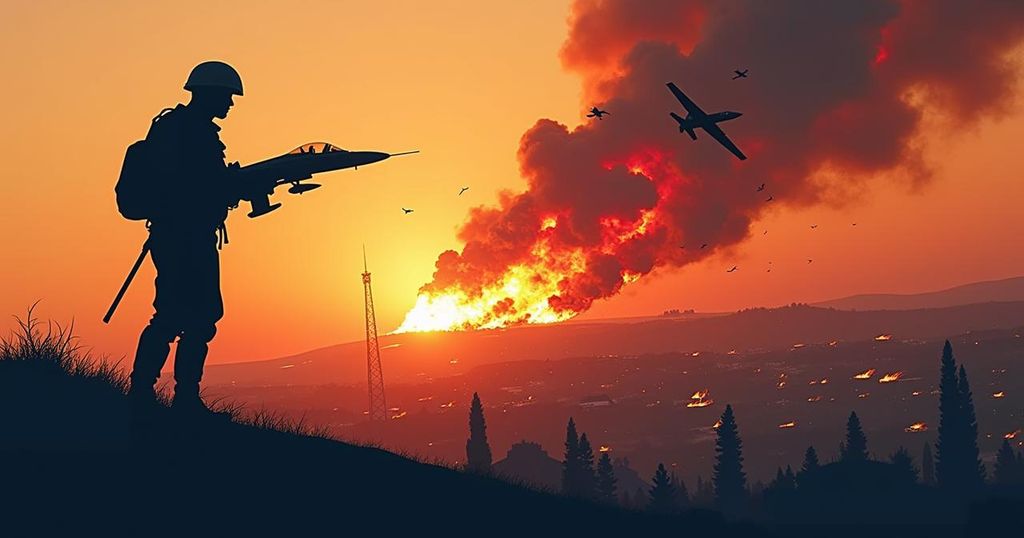Escalation in the Middle East: The Implications of Nasrallah’s Killing
Israeli airstrikes resulting in the death of Hezbollah leader Hassan Nasrallah signify a major escalation in conflict in the Middle East, raising fears of a broader war. The attack, part of intensified military operations against Hezbollah, has led to substantial civilian casualties and displacement in Lebanon, with Israel contemplating a possible ground invasion. Hezbollah has vowed to persist in its resistance, while Iran warns of repercussions, threatening further escalation.
The recent killing of Hezbollah leader Hassan Nasrallah by Israeli airstrikes has escalated tensions in the Middle East as fears of a broader conflict intensify. This significant action occurred within a 48-hour timeframe during which Israel targeted sites believed to belong to Hezbollah, the Iran-supported militant group that has been engaging in cross-border attacks against Israel since the onset of the war in Gaza. Following the airstrikes, Hezbollah has suffered considerable losses, with several of its commanders killed and its operational strength severely tested. The attack on Nasrallah is viewed as a decisive moment in the ongoing strife, with Israeli officials indicating a shift in focus toward northern conflict zones, particularly along the Lebanon border. This escalation has resulted in vast civilian displacements within Lebanon and rising casualties amongst the Lebanese population. Israeli military operations have raised the question of a potential ground invasion into Lebanon, marking the possibility of the fourth such incursion in half a century. Despite widespread destruction and civilian casualties in Lebanon, Hezbollah asserts its commitment to continuing its resistance against Israel, while Iran reiterates its support for the group. As hostilities continue, the regional dynamics could further complicate the situation, with analysts predicting that Hezbollah’s response to Nasrallah’s killing will likely provoke heightened military engagements. The potential for Iranian involvement looms large; Iranian officials have characterized Nasrallah’s death as a significant shift in the conflict’s parameters, leading to warnings of retaliation. While ceasefire talks have faltered and the path to peace remains complicated by ongoing violence between Israel and other militant entities, the risk of a larger war appears imminent.
The recent developments in the Middle East, particularly following the killing of Hezbollah leader Hassan Nasrallah by Israeli airstrikes, underscore a precarious and escalating conflict. This incident not only marks a significant turning point in the long-standing hostilities between Israel and Hezbollah but also raises broader concerns about regional stability. The violence in Lebanon has intensified amid the ongoing conflict in Gaza, complicating already strained diplomatic relationships. With Iran backing Hezbollah, the geopolitical implications of Nasrallah’s death are profound, suggesting that both Iranian and Hezbollah responses may heighten tensions further. Observers emphasize the potential for a wider war as military actions evolve.
In conclusion, the assassination of Hassan Nasrallah by Israeli forces represents a critical juncture in the ongoing conflicts in the region, potentially igniting a wider military confrontation. With significant losses sustained by Hezbollah and the threat of Iranian intervention looming over the situation, the dynamics of conflict in the Middle East may shift dramatically. The complex interplay of military strategy, regional alliances, and the humanitarian toll on civilians creates an urgent need for renewed diplomatic efforts to address the multi-faceted crises that continue to unfold.
Original Source: www.cnn.com




Post Comment